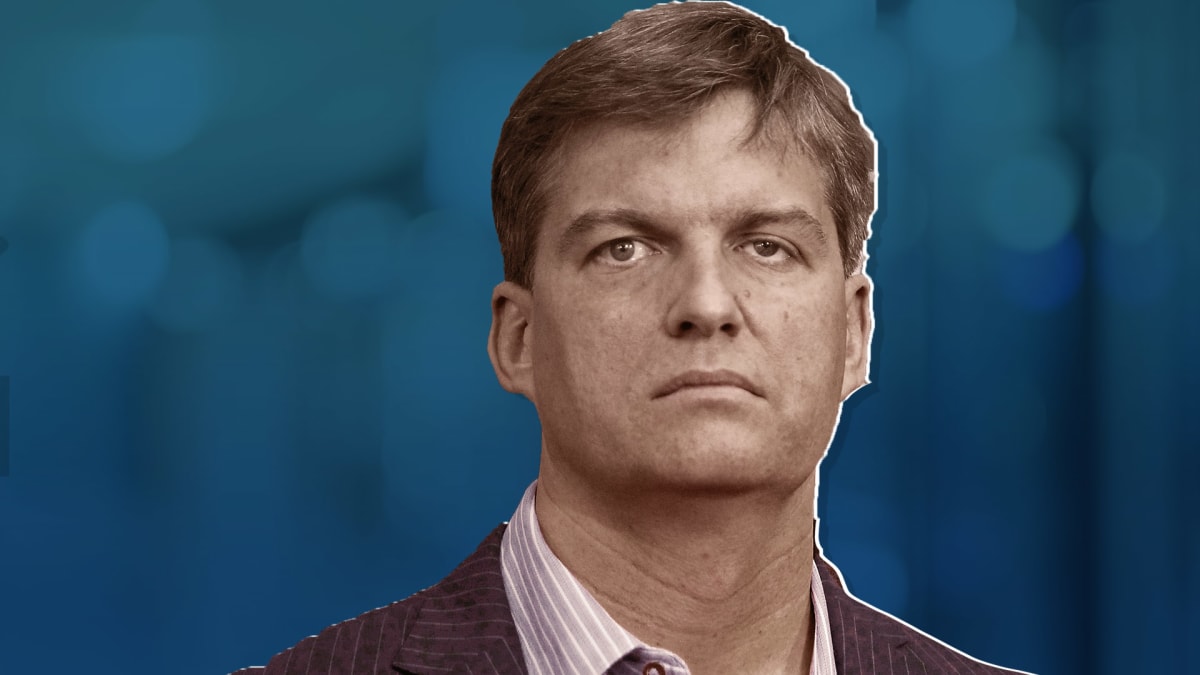
Since the beginning of the year, Michael Burry has never worn his Twitter handle so well.
He called himself "Cassandra BC." The Cassandras in mythology are doomsayers. Burry seems to suggest that his role is now to be the bearer of bad news. And he's been delivering it for the past few months to the individual investors who follow him and are on the lookout for any advice to boost their portfolio or limit their possible losses.
DON’T MISS: Ford Puts Gasoline Cars on Life Support in Europe
Burry appeared against the general trend in markets which rebounded well last month on hopes that the economic downturn might be less severe than feared. Many economists and analysts believe that the Federal Reserve will be less aggressive in the coming months in its policy of raising interest rates aimed at reducing inflation. According to them, this possible change would be likely to cause a soft landing in the economy rather than a particularly devastating hard landing.
Burry Advises 'Sell'
This moderate optimism contrasts with the pessimism of Burry, who is convinced that the economy will experience stronger shocks, which will have significant consequences on the stock market. He thus anticipates a stock market crash.
The investor who made financial history by betting on the fall of subprime mortgages advised investors to liquidate their shares in January.
"Sell," wrote the financier on Jan. 31 on his Twitter account. He didn't say anything more.
The message came the day before a Federal Reserve monetary policy decision on interest rates.
The Fed decided to increase its the federal funds rate by 25 basis points (0.25 percentage point) to a range of 4.5% to 4.75%, the highest since 2008. The central bank also said more increases will be needed to bring inflation more closely, and more consistently, towards its 2% target.
This increase, smaller than the previous ones, seemed to suggest that the central bank felt well positioned in its fight against inflation. Contrary to Burry's advice, investors did not sell. Quite the opposite, since the S&P 500 Index ended the day up more than 1%.
The question is whether he followed his own advice. The answer to this question will not fall before mid-May when Scion Asset Management, his hedge fund, will file the list of its holdings as required by the regulators.
Burry Expands His Portfolio
Meanwhile, Burry appears to have bet on the rebound of the economy in China and the United States late last year as Scion Asset Management acquired 100,000 shares of hotel and casino giant MGM Resorts International (MGM), and financial instruments linked to Chinese e-commerce giant Alibaba (BABA) and Chinese largest retailer JD.com (JDCMF) , according to regulatory filings.
As of December 31, Scion held 100,000 MGM shares. At the time, the value of this stake was $3.35 million. This value has increased this year to $4.42 million as MGM stock has gained almost 32% this year. The gain would therefore be nearly $1.1 million in less than three months if Burry has not sold these shares since.
MGM Resorts International controls iconic properties, including the Bellagio, Mandalay Bay, Aria, and MGM Grand in Las Vegas, as well as international properties such as MGM Cotai in Macau and MGM Grand Sanya in China.
It also has interests in entertainment and gaming ventures, including online gaming and sports betting.
By acquiring MGM shares, Burry bet that consumers would continue to spend on travel and entertainment.
In addition, the financier also invested in Chinese firms Alibaba and JD.com during the 2022 fourth quarter, through sponsored ADRs (American Depositary Receipts), according to the regulatory filings. These negotiable certificates gave him ownership of 50,000 Alibaba and 75,000 JD.com shares.
China lifted its lockdown measures related to the covid-19 pandemic in the fourth quarter last year, reopening its economy after nearly two years.
In total, Burry's portfolio consisted of nine companies, up from six in the third quarter. Only GEO and Qurate Retail were maintained quarter over quarter. The financier got rid of the shares of the other four groups held at the end of September, Aerojet Rocketdyne, Charter Communications, Corecivic Inc and Liberty Latin America.
Besides MGM, Alibaba, JD.com, Geo and Qurate Retail, Burry also owned Coherent Corp., Skywest Inc, Black Knight Inc. and Wolverine World Wide shares as of Dec. 31.
Stock-market regulations require managers of funds with more than $100 million in U.S. equities to file a document, a 13F, within 45 days of the end of the quarter, to list their holdings in stocks that trade on U.S. exchanges.







